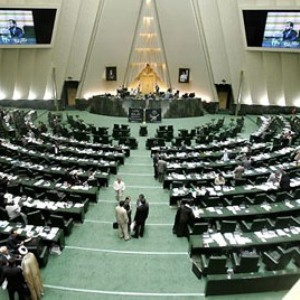What the New Foreign Policy Committee Connotes
The homogeneous composition of Foreign Policy Committee is not incidental

Matching-up the roughly homogenous composition of Iran's 8th Parliament, with its large "Principlist" majority and tiny reformist minority and precluding reformist representatives to enter the National Security and Foreign Policy Committees, is worth contemplation.
The import of National Security and Foreign Policy Committee lies in its responsibilities in monitoring all domestic and foreign political affairs, approving agreements and treaties with other countries etc. In fact, the Committee is the only tool for the legislature to be implemented in political relations.
However, the Foreign Policy Committee has gained importance in the 8th Parliament with Ali Larijani elected as the spokesman. With his political record and special attitude towards the nuclear issue which led to his resignation from secretaryship of the National Security Council, Larijani has a significant position to enter Iran's stage of foreign diplomacy.
There's no doubt that Parliament's Principlists who are in the same line with the government -the enforcer of parliament's bills-, consider membership in the National Security and Foreign Policy Committee a key objective. Clearly the goal is to reduce the friction between the government and parliament in the field of foreign diplomacy; otherwise the differences between these two branches would challenge many national decisions.
Meanwhile, answering questions about the government's suspected pressure on selection of certain MPs for National Security Committee and the Budget Committee, Gholam Hossein Elham, Speaker of the Cabinet claimed that the government hasn't had the least intervention in this issue, let alone exerting pressure.
Composition of 8th Parliament's National Security and Foreign Policy Committee
The management board of the National Security and Foreign Policy Committee does not include any reformist MPs. Another significant point is that some other members of the parliament coming from a diplomatic background have been precluded from entering the Committee and instead, MPs with irrelevant degrees –such as three medical doctors- have joined the committee. This has lead to harsh criticisms and has caused differences. There are also 10 MPs with a military background in this committee. Also Fatemeh Alia, Principlist member of the Cultural Committee in the 7th Parliament has joined the National Security Committee. Thus, the majority of this committee belongs to pro-Ahmadinejhad candidates.
Meanwhile, criticism against non-expert members of the Foreign Policy Committee has led some members of the parliament to propose a bill for splitting the National Security and Foreign Policy Committee into two committees each with 15-19 members.
MPs who put the bill forward believe that expertise is required for each committee since members have to decide on different domestic and foreign issues, have to contact key ministries such as ministries of foreign affairs and defense, National Security Council, armed forces and must closely pursue Iran's nuclear issue that directly influences the country's situation.
Clearly, the homogeneous composition of National Security and Foreign Policy is not incidental and free from political considerations. But despite this event, one thing which is clear is that the 8th Parliament will be a controversial one on foreign affairs, when another round of confrontation occurs between reformists and Principlists led by Ali Larijani.

